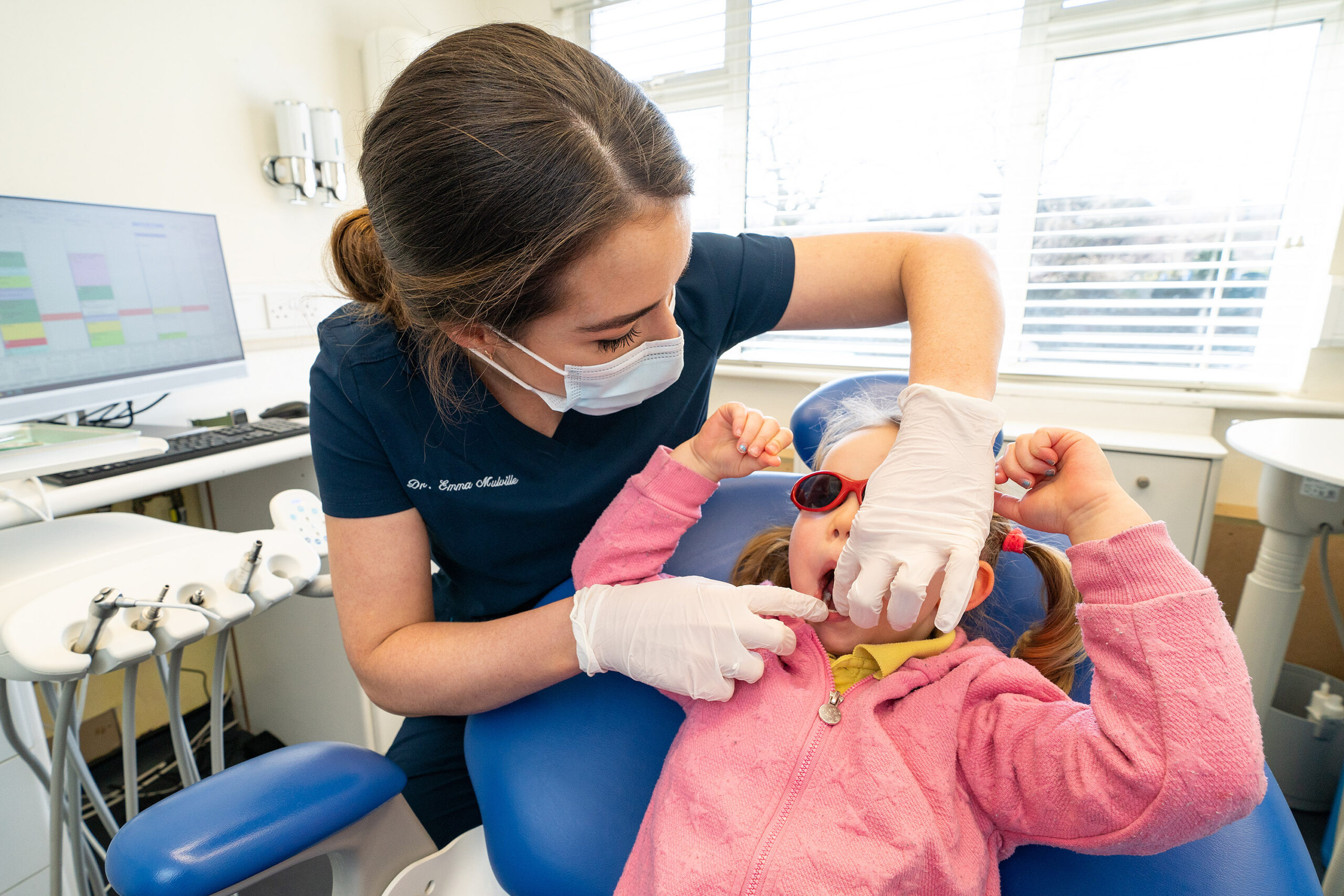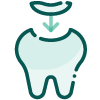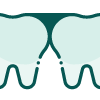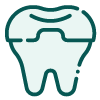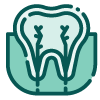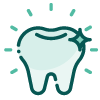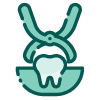What are the signs of teething? What is normal?
- Drooling
- Chewing on solid objects
- Irritability or crankiness
- Sore or tender gums
- Rosy cheeks
When will my baby’s teeth come in?
For most children, the first teeth will come through when they are between 6 and 12 months old. Girls tend to have their teeth come in before boys do. The first tooth to be seen is usually the middle, front tooth on the lower jaw (central incisor). The last teeth to come in are usually the canines (pointed teeth). Usually, about one tooth erupts per month. Most children will have a full set of 20 primary teeth by the time they are 3 years old.
What can I do if my baby has sore gums?
Teething can be painful and some babies may have sore or tender gums. Gently rubbing you baby’s gums with a clean finger, a small cool spoon, or wet gauze pad can be soothing. Cold refrigerated teething rings can also help. If you find your child is still cranky, in severe pain, or experiencing symptoms such as diarrhoea or fever seek further medical advice from your GP. We do not recommend the use of the product “Bonjela” as it contains choline salicylate (like aspirin) which can damage the gums.
How do I care for my baby’s new teeth?
Long before any teeth are seen in the mouth, it is a good idea to run a clean, damp, washcloth over your baby’s gums everyday. This will help to stop bacteria from building up.
Once the first teeth appear, you can begin using a small soft-bristled toothbrush with water or a very small amount of non-fluoride toothpaste.
How do baby bottles affect my baby’s teeth?
Baby bottles can be a problem as they keep the liquid in the mouth for long periods of time, especially if your baby uses it as a soother. Ideally, make sure that your child does not sleep with a bottle in his/her mouth. If you do give your baby a bottle at night, only water should be used as even milk can lead to decay (caries). Only place formula, breast milk or water inside baby bottles and always avoid sugary beverages such as fruit juices or fizzy drinks. By the time your child has reached his/her first birthday, discontinue all bottle feeding and encourage your child to drink from a cup.


